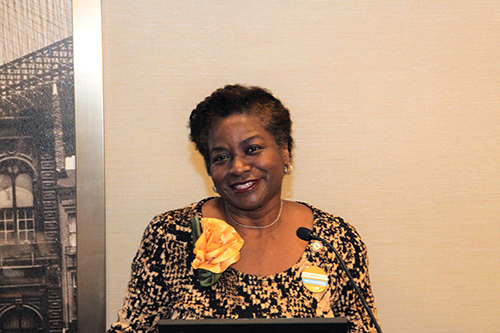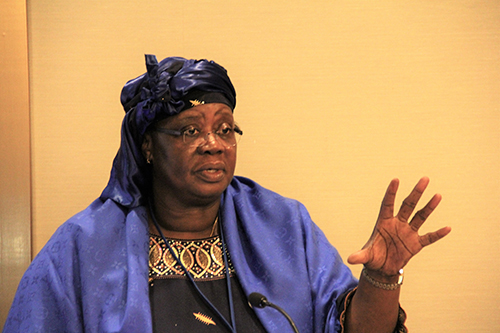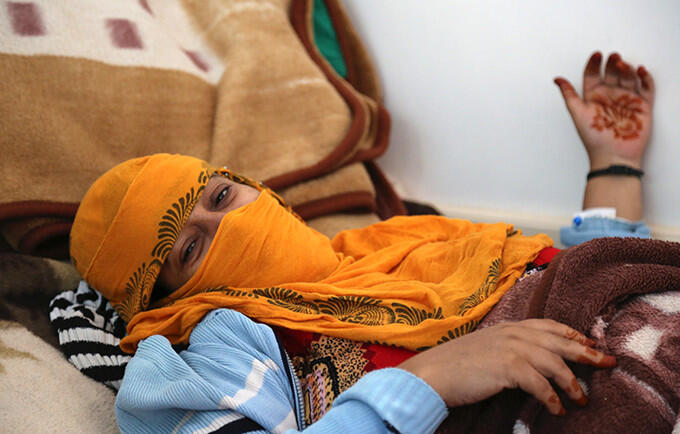UNITED NATIONS, New York/TAIZZ, Yemen – “My husband and I agreed to use family planning and not have more kids, but he was pressured by our family and I got pregnant again,” said Ahlam, a mother of two in Yemen, earlier this year. When she went into labour, she was forced to travel almost eight hours to give birth; medical assistance was unavailable in her hometown of Taizz, where most health facilities have been destroyed by the ongoing conflict.
The crisis in Yemen has left some 20.7 million people in need of humanitarian assistance, and displaced 10.4 per cent of the country’s population, among them 2.2 million women and girls of childbearing age.
Fortunately, Ahlam was able to reach the nearest functioning hospital in Jibla, Ibb Governorate, which had been equipped with emergency obstetric supplies by UNFPA. There, she safely gave birth to her third child via Caesarean section.

Emergency supplies
In crisis settings, “the risks [women and girls] face are disproportionately high, and the services and support available to them are disproportionately low,” said UNFPA’s Acting Executive Director, Dr. Natalia Kanem, at an event held last week at the United Nations General Assembly in New York. There, government representatives and humanitarian partners reaffirmed the importance of providing reproductive health supplies in humanitarian crises.
“In these settings, lives are at risk, dreams are shattered, and dignity and safety are compromised,” Dr. Kanem said.
About 60 per cent of the world’s preventable maternal deaths occur in humanitarian and fragile settings. Many of these deaths could be prevented with access to family planning supplies, which prevent unintended pregnancies in dangerous environments, and with the provision of reproductive health materials.
Supplies to care for survivors of sexual violence – such as emergency contraceptives and medications to prevent transmission of HIV – are also critical.
“Women and girls are attacked while on the run, while they seek protection, while they fetch water, when they fetch food, even while they use the latrines in the camps where they are seeking protection,” explained Mark Lowcock, head of the UN Office for the Coordination of Humanitarian Affairs.

No product, no progress
Without reproductive health products, there will be no progress, leaders at the event underscored.
Many also emphasized the importance of programmes like UNFPA Supplies, which is dedicated to expanding access to family planning and other essential reproductive health commodities in emergencies and other vulnerable settings. In 2016 alone, UNFPA Supplies reached 1.3 million women and girls around the world with emergency reproductive health kits. These kits include contraceptives, as well as equipment to ensure clean and safe births or to manage the consequences of rape.
But there are still massive challenges in getting such materials to those most in need.
UNFPA Supplies is currently facing a funding gap of nearly $700 million from 2017 to 2020, putting its work at risk.
And back in Yemen, shipments of reproductive health commodities – particularly family planning products – have been held up due to the crisis, jeopardizing the lives of thousands.
On top of that, only 45 per cent of health facilities are functional. Of these, only 37 per cent are supplying maternal and reproductive health services.
“Most health facilities have closed because of the conflict,” Arwa, a midwife in Taizz Governorate, told UNFPA. “This has increased our workload and put the lives of many pregnant women and their children at risk.”
Fahmia Al-Fotih and Rebecca Moudio



